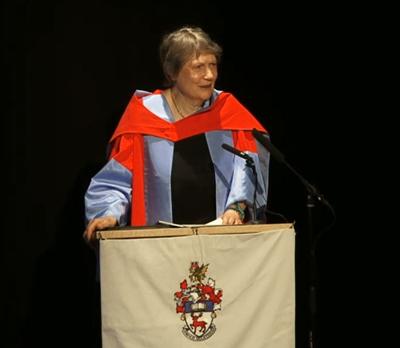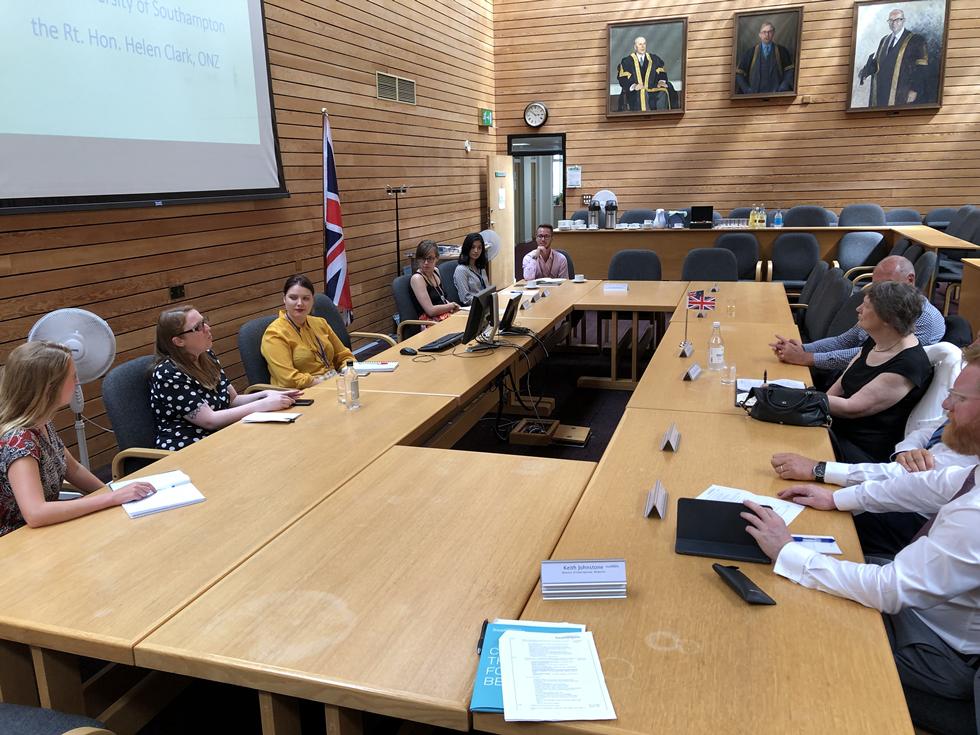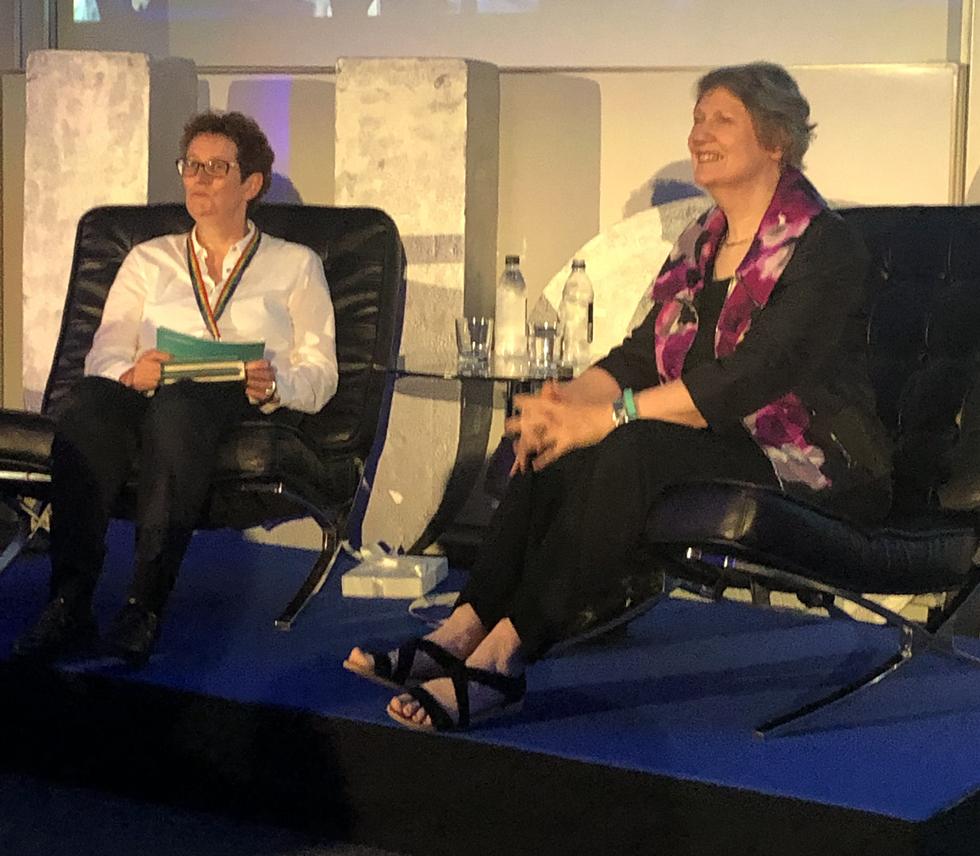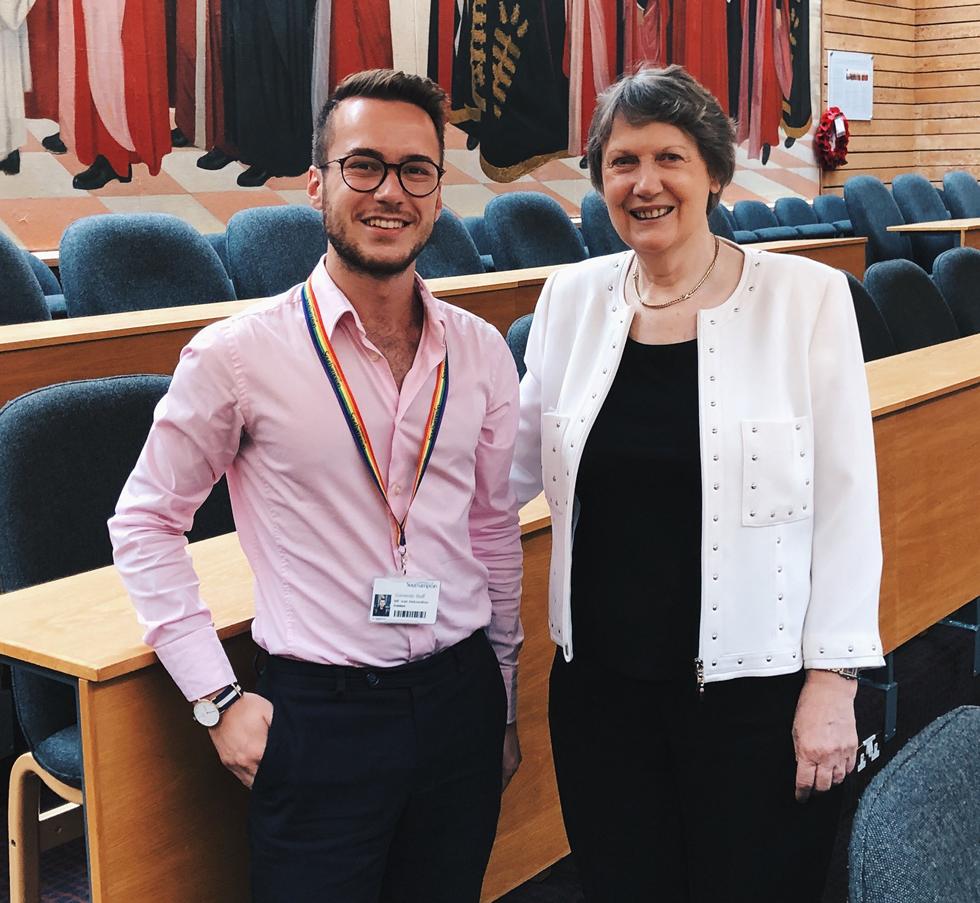Southampton awards Former New Zealand Prime Minister with Honorary Doctorate

Courage, determination, resilience, dedication and team-building are the ideal attributes for women in leadership to possess according the Right Honourable Helen Clark, former Prime Minister of New Zealand and United Nations Development Programme Administrator.
The University of Southampton was honoured to host Helen on a recent two day visit that included an ‘In Conversation’ event on ‘Women in Leadership’, meetings with academics to showcase our research in New Zealand and an opportunity for students to seek career advice from a global leader, culminating in Helen accepting an Honorary Doctorate of Letters .
“The University Council unanimously supported my nomination for Helen to receive an Honorary Doctorate” said Keith Johnstone, Director of International Relations, “Helen’s actions as a global leader and her continued strong voice on sustainable development, climate action, gender equality, peace and justice, and global public health perfectly resonate with the University of Southampton’s goals and aspirations in addressing global grand challenges through research, education and partnerships.”
Helen Clark was Prime Minister of New Zealand for three successive terms from 1999 to 2008. She was the first woman to become Prime Minister following a general election in New Zealand and the second woman to serve as Prime Minister. Throughout her tenure, she engaged widely in policy development and advocacy across the international affairs, economic, social, environmental and cultural spheres.
In 2009, Helen became Administrator of the United Nations Development Programme (UNDP). She was the first woman to lead the UNDP, serving two terms and leading it to be ranked as the most transparent global development organisation. She is current Chair of the Advisory Board of UNESCO’s Global Education Monitoring Report and Chairperson of the Extractive Industries Transparency Initiative.
In speaking with Professor Jane Falkingham, Dean of Social Sciences, Helen said “it’s hard to be what you can’t see”, and that for universities “…, it’s important to see women in senior management - as Deans, senior professors, senior faculty – and to see women in equal numbers everywhere,” she continued. “That will really encourage girl and women students, bearing in mind that women do tend to be reluctant to put themselves forward often to do that mentoring and encouraging; men AND women should both do that.”
“You also need the capacity to build teams of support around you for all the low points… and be able to somehow balance the responsibilities which women tend to have,” she continued. “In our world, three-quarters of the unpaid work is done by women so anything else we take on is often on top of that disproportionate share of work as well.”
After meeting Helen, Masters student, Ivan Aleksandrov Ivanov, said, “I feel absolutely honoured to have met such a genuine humanitarian like Helen. She provided indispensable advice from her influential life and leadership experience about our future careers.”
Southampton was pleased to share with Helen and her guests it’s collaborations with New Zealand. Including: Professor Mark Hanson’s work with New Zealand’s Chief Science Advisor, Sir Peter Gluckman in epigenetics; our work in preventing geohazards; understanding volcanism; our archaeologists work in maritime migration; and Winchester School of Arts work with Massey University in modern and traditional design.
Addressing her fellow graduates at her graduation ceremony, that included degree recipients in Politics and International Relations, Helen predicted that “Southampton’s graduates will surely be found amongst those inspirational leaders of the future.”
“Problematic as the times we live in are, I remain an optimist,” she continued. “I believe it is within our capacity as a human community to overcome the challenges before us that will require leadership from you, investment in human capacities and a determination of all societies to grow and develop in ways which are inclusive and sustainable.
“And so I encourage each of you as Southampton graduates to think about how your knowledge and skills can be put to the service not only of advancing your own careers, important as that is, but also to advancing our common future."


